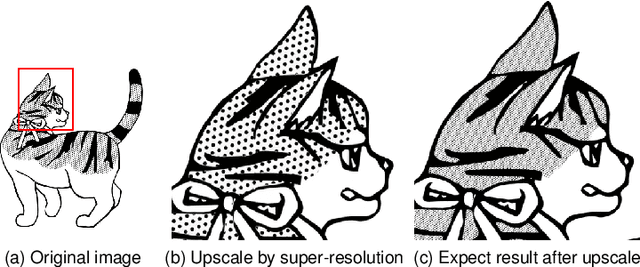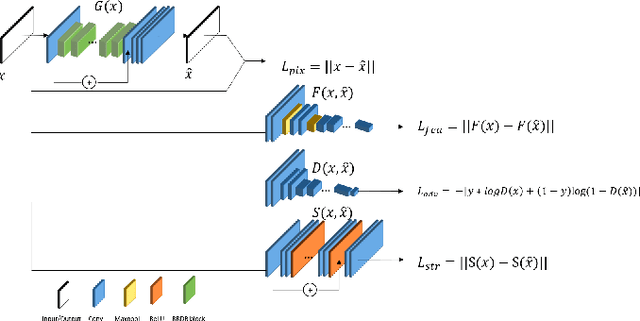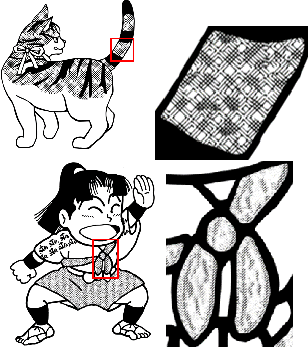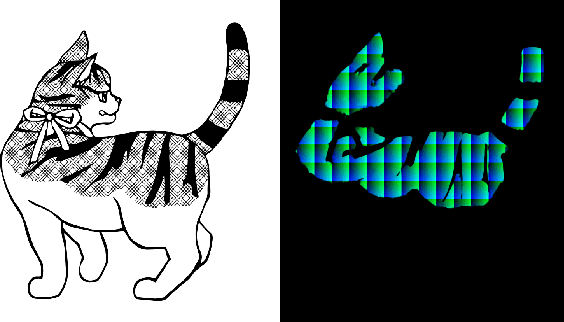Husan-Ting Chou
Screentone-Aware Manga Super-Resolution Using DeepLearning
May 15, 2023



Abstract:Manga, as a widely beloved form of entertainment around the world, have shifted from paper to electronic screens with the proliferation of handheld devices. However, as the demand for image quality increases with screen development, high-quality images can hinder transmission and affect the viewing experience. Traditional vectorization methods require a significant amount of manual parameter adjustment to process screentone. Using deep learning, lines and screentone can be automatically extracted and image resolution can be enhanced. Super-resolution can convert low-resolution images to high-resolution images while maintaining low transmission rates and providing high-quality results. However, traditional Super Resolution methods for improving manga resolution do not consider the meaning of screentone density, resulting in changes to screentone density and loss of meaning. In this paper, we aims to address this issue by first classifying the regions and lines of different screentone in the manga using deep learning algorithm, then using corresponding super-resolution models for quality enhancement based on the different classifications of each block, and finally combining them to obtain images that maintain the meaning of screentone and lines in the manga while improving image resolution.
 Add to Chrome
Add to Chrome Add to Firefox
Add to Firefox Add to Edge
Add to Edge